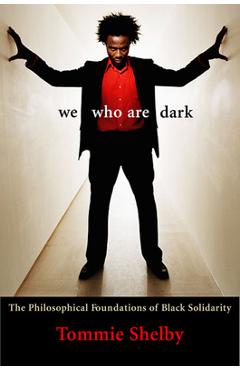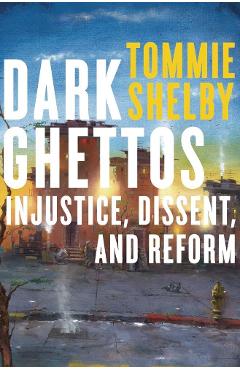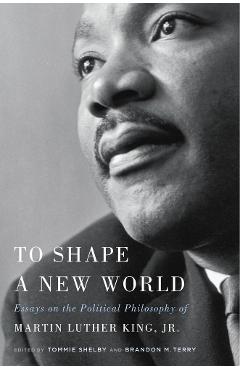We Who Are Dark: The Philosophical Foundations of Black Solidarity - Tommie Shelby

Detalii We Who Are Dark: The
We Who Are Dark: The - Disponibil la libris.ro
Pe YEO găsești We Who Are Dark: The de la Tommie Shelby, în categoria Social Science.
Indiferent de nevoile tale, We Who Are Dark: The Philosophical Foundations of Black Solidarity - Tommie Shelby din categoria Social Science îți poate aduce un echilibru perfect între calitate și preț, cu avantaje practice și moderne.
Preț: 273.89 Lei
Caracteristicile produsului We Who Are Dark: The
- Brand: Tommie Shelby
- Categoria: Social Science
- Magazin: libris.ro
- Ultima actualizare: 11-04-2024 01:14:23
Comandă We Who Are Dark: The Online, Simplu și Rapid
Prin intermediul platformei YEO, poți comanda We Who Are Dark: The de la libris.ro rapid și în siguranță. Bucură-te de o experiență de cumpărături online optimizată și descoperă cele mai bune oferte actualizate constant.
Descriere magazin:
African-American history resounds with calls for black unity. Yet today, many believe that black solidarity is unnecessary, irrational, and rooted in the illusion of racial difference. A response to such critics, We Who Are Dark provides the first extended philosophical defense of black political solidarity. African American history resounds with calls for black unity. From abolitionist times through the Black Power movement, it was widely seen as a means of securing a full share of America\'s promised freedom and equality. Yet today, many believe that black solidarity is unnecessary, irrational, rooted in the illusion of racial difference, at odds with the goal of integration, and incompatible with liberal ideals and American democracy. A response to such critics, We Who Are Dark provides the first extended philosophical defense of black political solidarity. Tommie Shelby argues that we can reject a biological idea of race and agree with many criticisms of identity politics yet still view black political solidarity as a needed emancipatory tool. In developing his defense of black solidarity, he draws on the history of black political thought, focusing on the canonical figures of Martin R. Delany and W. E. B. Du Bois, and he urges us to rethink many traditional conceptions of what black unity should entail. In this way, he contributes significantly to the larger effort to re-envision black politics and to modernize the objectives and strategies of black freedom struggles for the post-civil rights era. His book articulates a new African American political philosophy--one that rests firmly on anti-essentialist foundations and, at the same time, urges a commitment to defeating racism, to eliminating racial inequality, and to improving the opportunities of those racialized as black.

Produse asemănătoare
Produse marca Tommie Shelby

We Who Are Dark: The Philosophical Foundations of Black Solidarity - Tommie Shelby
![]() libris.ro
libris.ro
Actualizat in 11/04/2024
273.89 Lei



